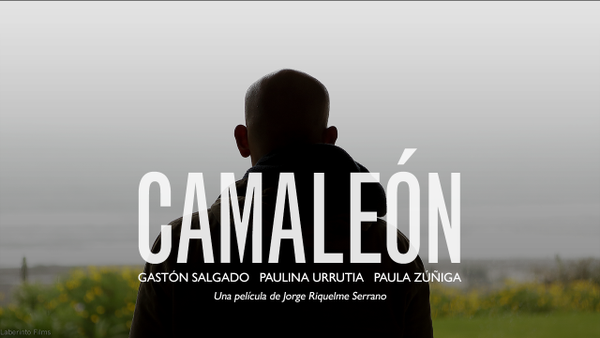The world is at odds because of the social class system. The massive huge divide between culures and within those cultures. Rich and poor are segregated by entitlement and greed where the former truly believe that they are better than the latter. For many, this construct is enraging. People take to the streets to fight back against the injustice. And the madness run deeper for most people.
On both sides, the sentiments fester dangerously: Racism and prejudice for the privileged to attempt to curtail the working class into obedience verses complete anger and raging back against the masses.
Director Jorge Serrano, Chameleon is a Chilean thriller that takes these political and social emotions, particularly the latter, and shoves them into a brutal and uneasy yet brilliant film.

Chameleon revolves around a party-dweller named Gaston who infiltrates an upper-class party at a home by the beach. Turning up the next day and apologising for his friend’s antics the night before, Gaston soon charms hostesses Paula and Paulina into letting him crash for a couple more hours. However, due to Paulina’s nature, she is uneasy and condescending to Gaston whilst Paula is trying to be hospital to him. Unfortunately, for the women, Gaston unleashes and physical and psychological power play in which the women are tormented, tortured, and brutally broken down.
Chameleon is uneasy viewing as Gaston unleashes his horror both psychologically and physically. Audiences will be initially caught by Gaston’s charm and as he unravels, you are enthralled into the coldness and savagery on the big screen. For those of a nervous disposition, or suffering from trauma, the over-bearing and long rape scene half way through the movie is almost unwatchable (owing to plenty of people at the festival walking out.) It’s, at times, hard to figure out where Serrano is coming from with this uncomfortable and completely barbaric scenes. Alluding to Chilean home invasions that have tainted the country’s history, Serrano drew “inspiration” for this cruel acts in his films and the fascination of people who can worm their way into someone else’s home, releasing a tirade.

Whilst as vicious as this scene is, it comes with meaning. Whether it’s the showcase Gaston’s political and social struggle setting off a unjust temper against the women who have scorned him or to highlight violence against the LGBT community, Serrano sets of semantics and sentiments within the movie and creates substance to the horror – making it unrelenting and more horrifying.
There is power-plays through the different classes as Gaston plays the renegade hot white rage to Paulina’s refined and patronising gaze and Paula is meditating inbetween. Serrano is intelligent enough to unravel these stances smartly to the point that, no matter how harsh the images are on screen, you are completely engaged. Chameleon is an interesting film that may need another watch for you to develop your own viewpoint – but perhaps not too soon…
Chameleon played as part of the BFI East End Film Festival

